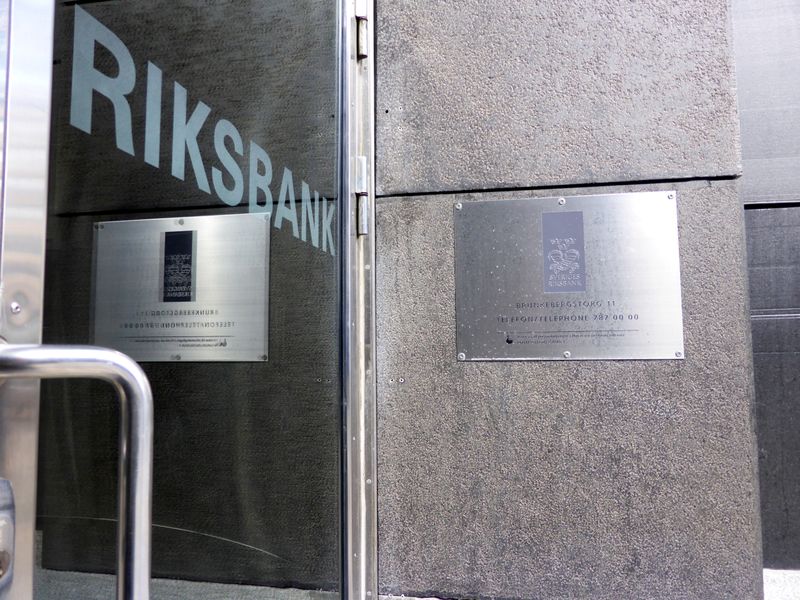PoundSterlingLIVE - Image © Adobe (NASDAQ:ADBE) Images
The Krona will remain under pressure as the Riksbank still has two more rate cuts left in the bag, and there is the potential for it to go even further in 2025.
According to DNB, the Nordic bank, Sweden's Riksbank will cut the policy rate by 25bp at next week's Monetary Policy Meeting. In addition, economists update their forecast with another cut by 25bp in January 2025, finally reaching a policy rate of 2.25% (previously 2.50%).
Expectations of an additional cut in early 2025, aimed at stimulating the sluggish Swedish economy, could weaken the krona further.
"The krona has already, in contrast to the Riksbank forecasts, deteriorated significantly during the fall. Since September, USDSEK has depreciated from 10.10 to 10.95 and EURSEK from 11.25 to 11.55. The KIX-index has moved from 123 to 128," says Ulf Andersson, Chief Economist at DNB Sweden.
The Swedish krona has depreciated significantly against the U.S. dollar, Pound and the Euro since September, contrary to Riksbank forecasts.
Although a weaker krona can make Swedish exports more competitive, further depreciation could challenge the Riksbank by raising import inflation.
Despite the potential negative impact of the SEK weakening, Andersson believes the Riksbank will likely prioritise supporting economic activity via lowering the base rate.
"As long as inflation and inflation expectations remain close to the target, the Riksbank will likely prioritise further support to stimulate the low economic activity", he states.
The EUR/SEK exchange rate fell in November to 11.46 but has since started climbing again amidst renewed SEK weakness.
The pair is at 11.53 at the time of writing, and a dovish outcome to next week's Riksbank meeting is likely to give the pair further upside.
GBP/SEK is meanwhile trading near 2024 highs at 13.97, with a test of 14.00 now visible on the radar.
DNB thinks that although Riksbank will cut during the first half of 2025, if the economic recovery is further delayed, it could ease further.
The Swedish economy grew by a mere 0.3% quarter-on-quarter in the third quarter of the year.
While housing investments increased after nine consecutive quarters of decline, private consumption remained stagnant, with inventory changes being the main driver of growth.
DNB thinks that the Riksbank will aim to stimulate economic activity through further monetary easing.
Despite a jump in inflation during November, DNB says that underlying inflation is under control and expected to stabilise around the 2% target.
This allows the Riksbank some leeway to prioritise economic growth over inflation concerns in its policy decisions.
DNB notes "considerable uncertainty about economic developments abroad" stemming from geopolitical tensions, trade barriers, and economic policies, particularly in the U.S.
These uncertainties could negatively impact the global and, consequently, the Swedish economy.
In light of these factors, DNB expects the Riksbank to cut the policy rate by 25 bps at its next meeting, bringing it down to 2.50%.
An original version of this article can be viewed at Pound Sterling Live
